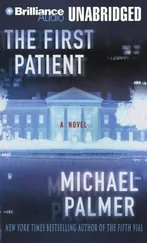Michael Ondaatje - The English Patient
Здесь есть возможность читать онлайн «Michael Ondaatje - The English Patient» весь текст электронной книги совершенно бесплатно (целиком полную версию без сокращений). В некоторых случаях можно слушать аудио, скачать через торрент в формате fb2 и присутствует краткое содержание. Жанр: Старинная литература, на русском языке. Описание произведения, (предисловие) а так же отзывы посетителей доступны на портале библиотеки ЛибКат.
- Название:The English Patient
- Автор:
- Жанр:
- Год:неизвестен
- ISBN:нет данных
- Рейтинг книги:4 / 5. Голосов: 1
-
Избранное:Добавить в избранное
- Отзывы:
-
Ваша оценка:
- 80
- 1
- 2
- 3
- 4
- 5
The English Patient: краткое содержание, описание и аннотация
Предлагаем к чтению аннотацию, описание, краткое содержание или предисловие (зависит от того, что написал сам автор книги «The English Patient»). Если вы не нашли необходимую информацию о книге — напишите в комментариях, мы постараемся отыскать её.
The English Patient — читать онлайн бесплатно полную книгу (весь текст) целиком
Ниже представлен текст книги, разбитый по страницам. Система сохранения места последней прочитанной страницы, позволяет с удобством читать онлайн бесплатно книгу «The English Patient», без необходимости каждый раз заново искать на чём Вы остановились. Поставьте закладку, и сможете в любой момент перейти на страницу, на которой закончили чтение.
Интервал:
Закладка:
The rest of us are just periphery, she thinks, his eyes are only on what is dangerous, his listening ear on whatever is happening in Helsinki or Berlin that comes over the shortwave. Even when he is a tender lover, and her left hand holds him above the kara , where the muscles of his forearm tense, she feels invisible to that lost look till his groan when his head falls against her neck. Everything else, apart from danger, is periphery. She has taught him to make a noise, desired it of him, and if he is relaxed at all since the fighting it is only in this, as if finally willing to admit his whereabouts in the darkness, to signal out his pleasure with a human sound.
How much she is in love with him or he with her we don’t know. Or how much it is a game of secrets. As they grow intimate the space between them during the day grows larger. She likes the distance he leaves her, the space he assumes is their right. It gives each of them a private energy, a code of air between them when he passes below her window without a word, walking the half-mile to assemble with the other sappers in the town. He passes a plate or some food into her hands. She places a leaf across his brown wrist. Or they work with Caravaggio between them mortaring up a collapsing wall. The sapper sings his Western songs, which Caravaggio enjoys but pretends not to.
“Pennsylvania six-five-oh-oh-oh,” the young soldier gasps.
She learns all the varieties of his darkness. The colour of his forearm against the colour of his neck. The colour of his palms, his cheek, the skin under the turban. The darkness of fingers separating red and black wires, or against bread he picks off the gunmetal plate he still uses for food. Then he stands up. His self-sufficiency seems rude to them, though no doubt he feels it is excessive politeness.
She loves most the wet colours of his neck when he bathes. And his chest with its sweat which her fingers grip when he is over her, and the dark, tough arms in the darkness of his tent, or one time in her room when light from the valley’s city, finally free of curfew, rose among them like twilight and lit the colour of his body.
Later she will realize he never allowed himself to be beholden to her, or her to him. She will stare at the word in a novel, lift it off the book and carry it to a dictionary. Beholden. To be under obligation . And he, she knows, never allowed that. If she crosses the two hundred yards of dark garden to him it is her choice, and she might find him asleep, not from a lack of love but from necessity, to be clear-minded towards the next day’s treacherous objects.
He thinks her remarkable. He wakes and sees her in the spray of the lamp. He loves most her face’s smart look. Or in the evenings he loves her voice as she argues Caravaggio out of a foolishness. And the way she crawls in against his body like a saint.
They talk, the slight singsong of his voice within the canvas smell of their tent, which has been his all through the Italian campaign, which he reaches up to touch with his slight fingers as if it too belonged to his body, a khaki wing he folds over himself during the night. It is his world. She feels displaced out of Canada during these nights. He asks her why she cannot sleep. She lies there irritated at his self-sufficiency, his ability to turn so easily away from the world. She wants a tin roof for the rain, two poplar trees to shiver outside her window, a noise she can sleep against, sleeping trees and sleeping roofs that she grew up with in the east end of Toronto and then for a couple of years with Patrick and Clara along, the Skootamatta River and later Georgian Bay. She has not found a sleeping tree, even in the density of this garden.
“Kiss me. It’s your mouth I’m most purely in love with. Your teeth.” And later, when his head has fallen to one side, towards the air by the tent’s opening, she has whispered aloud, heard only by herself, “Perhaps we should ask Caravaggio. My father told me once that Caravaggio was a man always in love. Not just in love but always sinking within it. Always confused. Always happy. Kip? Do you hear me? I’m so happy with you. To be with you like this.”
Most of all she wished for a river they could swim in. There was a formality in swimming which she assumed was like being in a ballroom. But he had a different sense of rivers, had entered the Moro in silence and pulled the harness of cables attached to the folding Bailey bridge, the bolted steel panels of it slipping into the water behind him like a creature, and the sky then had lit up with shell fire and someone was sinking beside him in mid-river. Again and again the sappers dove for the lost pulleys, grappling hooks in the water among them, mud and surface and faces lit up by phosphorus flares in the sky around them.
All through the night, weeping and shouting, they had to stop each other going crazy. Their clothes full of winter river, the bridge slowly eased into a road above their heads. And two days later another river. Every river they came to was bridgeless, as if its name had been erased, as if the sky were starless, homes doorless. The sapper units slid in with ropes, carried cables over their shoulders and spannered the bolts, oil-covered to silence the metals, and then the army marched over. Drove over the prefabricated bridge with the sappers still in the water below.
So often they were caught in midstream when the shells came, flaring into mudbanks breaking apart the steel and iron into stones. Nothing would protect them then, the brown river thin as silk against metals that ripped through it.
He turned from that. He knew the trick of quick sleep against this one who had her own rivers and was lost from them.
Yes, Caravaggio would explain to her how she could sink into love. Even how to sink into cautious love. “I want to take you to the Skootamatta River, Kip,” she said. “I want to show you Smoke Lake. The woman my father loved lives out on the lakes, slips into canoes more easily than into a car. I miss thunder that blinks out electricity. I want you to meet Clara of the canoes, the last one in my family. There are no others now. My father forsook her for a war.”
She walks towards his night tent without a false step or any hesitation. The trees make a sieve of moonlight, as if she is caught within the light of a dance hall’s globe. She enters his tent and puts an ear to his sleeping chest and listens to his beating heart, the way he will listen to a clock on a mine. Two a.m. Everyone is asleep but her.
IV
South Cairo 1930–1938
THERE IS, after Herodotus, little interest by the Western world towards the desert for hundreds of years. From 425 B.C. to the beginning of the twentieth century there is an averting of eyes. Silence. The nineteenth century was an age of river seekers. And then in the 1920s there is a sweet postscript history on this pocket of earth, made mostly by privately funded expeditions and followed by modest lectures given at the Geographical Society in London at Kensington Gore. These lectures are given by sunburned, exhausted men who, like Conrad’s sailors, are not too comfortable with the etiquette of taxis, the quick, flat wit of bus conductors.
When they travel by local trains from the suburbs towards Knightsbridge on their way to Society meetings, they are often lost, tickets misplaced, clinging only to their old maps and carrying their lecture notes—which were slowly and painfully written—in their ever present knapsacks which will always be a part of their bodies. These men of all nations travel at that early evening hour, six o’clock, when there is the light of the solitary. It is an anonymous time, most of the city is going home. The explorers arrive too early at Kensington Gore, eat at the Lyons Corner House and then enter the Geographical Society, where they sit in the upstairs hall next to the large Maori canoe, going over their notes. At eight o’clock the talks begin.
Читать дальшеИнтервал:
Закладка:
Похожие книги на «The English Patient»
Представляем Вашему вниманию похожие книги на «The English Patient» списком для выбора. Мы отобрали схожую по названию и смыслу литературу в надежде предоставить читателям больше вариантов отыскать новые, интересные, ещё непрочитанные произведения.
Обсуждение, отзывы о книге «The English Patient» и просто собственные мнения читателей. Оставьте ваши комментарии, напишите, что Вы думаете о произведении, его смысле или главных героях. Укажите что конкретно понравилось, а что нет, и почему Вы так считаете.












